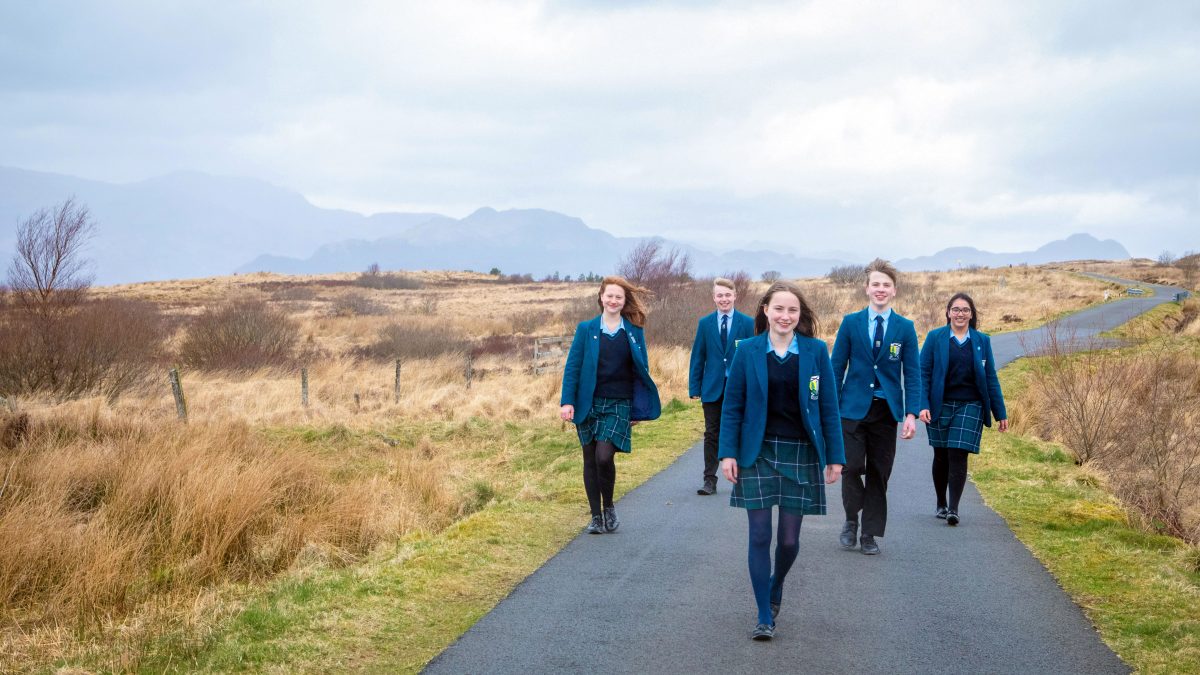This month, Greta Thunberg: A Year to Change the World has been broadcast across our screens. Thunberg hardly needs an introduction however the 18-year-old, who has been leading the climate change conversation publicly from the age of 15, is a forward-thinker, a critical analyser and is driven by a cause that she is passionate about. She is a symbol for the next generation of people who will be leading change in the years to come and she has been inspirational to many young people across the globe.
Also this month, secondary pupils in Scotland returned to school fulltime following the most recent lockdown and as we look ahead, after everything that the world has been through over the past year, it’s clear this is the optimum opportunity to adjust our education models and to align them with the future ahead. After all, we have done it before when the pressure was on to transfer at a moment’s notice to a fully remote learning environment and we proved that change is more than possible.
Our world is in crisis, not only due to the pandemic, but as Greta reminds us, we also require urgent steps to cut carbon emissions. Our young people need to develop the skills required not just to get to the next stage in their education or to secure a job but to really make a difference in the world. We need problem solvers, creative thinkers, innovators, collaborators and those with the courage to think outside of the box, and who have the drive and determination to enact change. To succeed, they must also have compassion, cultural understanding, communication skills and a moral compass to enable them to do this ethically for the benefit of all rather than just themselves. Schools have a significant role to play in helping nurture these fundamental attributes in our young people, to develop and hone these skills, creating a curriculum that supports each and every young person no matter their strengths.
Pupils in England choose which areas to specialise in from a very young age and typically only study three A-levels in the last two years of school; a significant narrowing of the curriculum made at a young age. Although the curriculum stays broader for longer in Scotland, pupils sit external exams every year for the last three years of their school career, and the focus therefore becomes more on the assessment rather than the learning. This means that there is less focus on some of the valuable skills that are so important for our young people to be truly successful in their lives.
No two pupils are the same and therefore a combination of different curriculum models is what is required to ensure that the skills and strengths of each young person are supported rather than undermined – whether traditionally academic or not.
Thinking, communication, research, self-management, life, social and digital skills must be embedded into the curriculum from nursery and continued throughout a young person’s school career to prepare them for the future. Rather than learn key words, memorise passages, and passively follow the exam ‘formula’ that will achieve an A grade, it is essential that pupils are rewarded through the curriculum for creative, critical and original thinking.
Greta Thunberg took a year off school in 2019 to learn more about climate change. However, we need to ignite a passion in our young people to make a difference whilst they are in school. We must support and encourage them to become the global leaders and key business people that we need for a better future. We need to offer a curriculum that has active learning at its heart, is tailored to our young peoples’ strengths and teaches them to grow from their weaknesses. The world will continue to evolve, and we must evolve with it. Let’s nurture our youth starting with a curriculum model which encourages pupils to unlock their potential and gives them the keys to do so for themselves.




